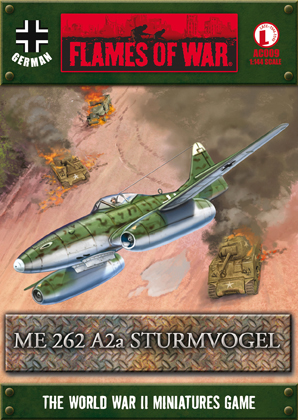 | Me 262 A2a Sturmvogel (AC009) includes one Me 262 A2a Sturmvogel, one Flight stand, one Aircraft dice, two Rare-earth magnets & one Decal sheet. The development of the Me 262 begun before the outbreak of the Second World War. Plans had been on the drawing board since April 1939; however delays in the development of the jet engine due to numerous teething troubles and lack of funding made progress slow. This was further hindered by the thinking of high ranking Luftwaffe personnel, who concluded that the requirement of an operational jet fighter unnecessary and that the war could be won with more traditional piston-driven aircraft. Check out the Me 262 A2a Sturmvogel in the online store here... |
| Devil's Charge The Germans had been in retreat since the Allied breakout from Normandy, finally settling into defensive lines on their frontier as Autumn turned into Winter. In early December 1944 it seemed, to the Americans facing them in the Ardennes forests of Belgium and Luxembourg, unlikely that the Germans would attack. Learn more about Devil's Charge here... | 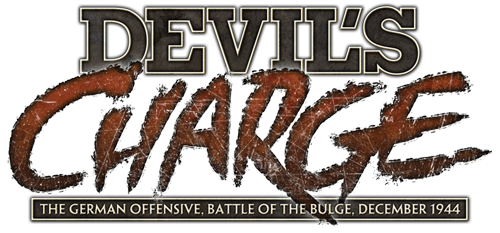 |
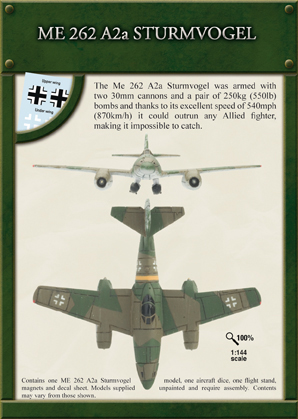 | These delays meant that the Me 262 did not attain operational status with the Luftwaffe until the middle of 1944. Leutnant Alfred Schreiber had the honour of opening the tally in the age of the jet fighter by scoring the first victory in the Me 262 on 26 July 1944. The speed of the Me 262 meant the new tactics had to be developed by both sides in terms of attack and defence. However, despite being a technological marvel, the Me 262 was not without its weaknesses. At lower air speeds the engines did not provide a lot of thrust and the throttle was slow to respond. Furthermore, if a pilot was overly aggressive with the throttle this increased the chance of flameout (the extinction of the flame within the jet engine’s combustion chamber). Therefore, German pilots quickly learnt not to get into low-speed turning contests with Allied fighters. Allied pilots found the only reliable way of dealing with the Me 262 were to attack them on the ground or while landing and taking-off. The Germans countered these tactics by beefing-up anti-aircraft defences on airfields and providing air cover with traditional single-engined fighters while the Me 262 was in these vulnerable stages of flight. But as fuel shortages and lack of experienced pilots slowing crippled the Luftwaffe, not even the technological advances of the Me 262 could change the course of Germany’s fate. Designed by Evan Allen Painted by James Brown | ||||||||||||||||||
| The Me 262 A2a Sturmvogel in Flames Of War | |||||||||||||||||||
| |||||||||||||||||||
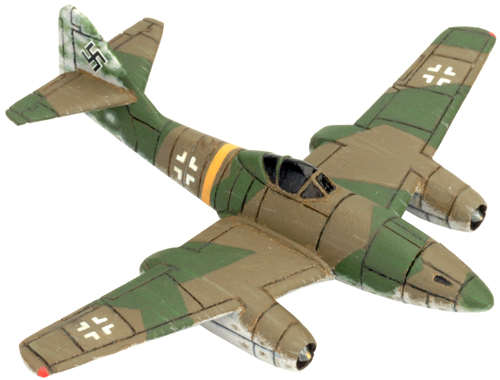 | 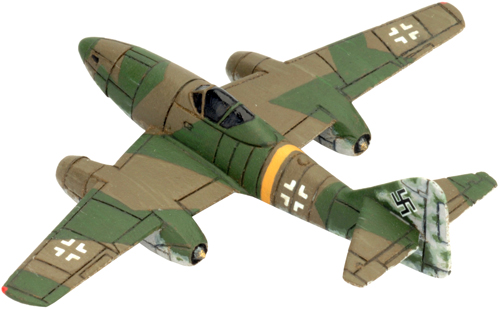 |
| The Birth of the Jet Age The Luftwaffe (German Air Force) was not idle over the skies of Belgium with fighter-bombers attacking targets of opportunity. However, it was also the debut of the world’s first operational jet fighter: the Me 262. The ground attack version, the Me 262 A2a Sturmvogel (Storm Bird), was armed with two 30mm cannons and a pair of 250kg (550lb) bombs. Its excellent speed of 540mph (870km/h) meant that it could outrun any Allied fighter, making it impossible to catch. | |
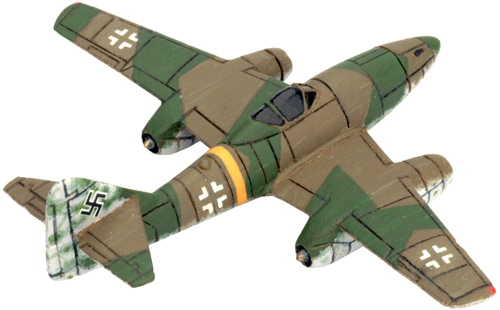 | 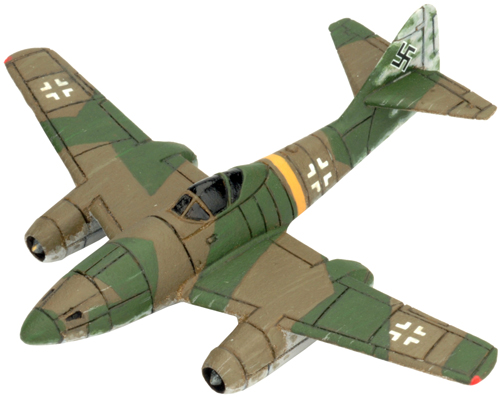 |
| Operation Bodenplatte Operation Bodenplatte (Baseplate) was to be launched on 16 December 1944. Its mission was to cripple Allied air support giving the ground units of Wacht Am Rhein a fighting chance. However, the weather refused to co-operate and the operation wasn’t launched until 1 January 1945. | |
 |  |
| The New Flight Stand The new flight stand made its début in the Flames Of War Vietnam helicopter box sets. The new design is much improved and is stronger and more stable than the previous version. It can not only be used with just the Huey, but other Flames Of War aircraft too. Learn more about the new plastic Flight Stand here... | |
 |  |
| High-speed JetGround attacks by Me 262 A2a aircraft cannot be intercepted using the Fighter Interception rule on page 179 of the rulebook. | |
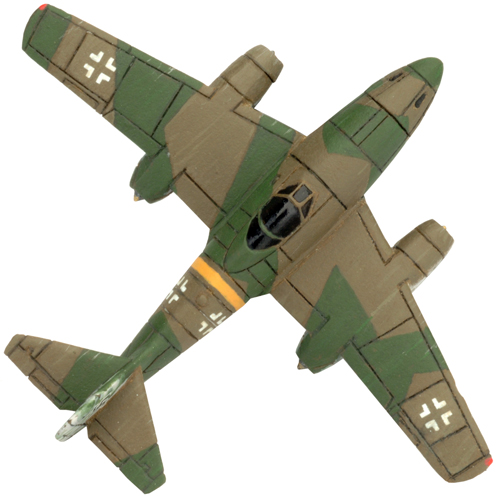 | 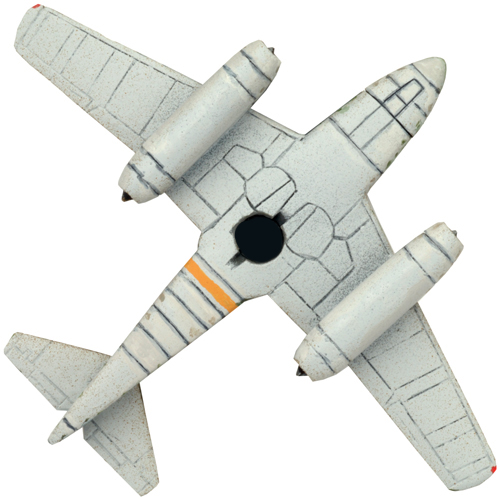 |
| The Flying Stand & Aircraft Dice | ||
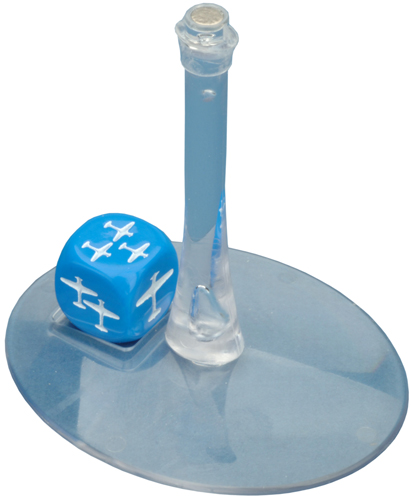 | 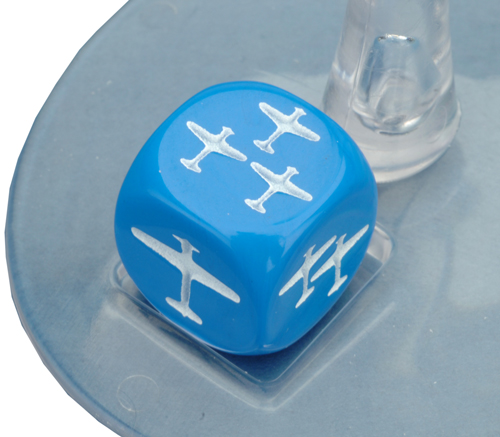 | 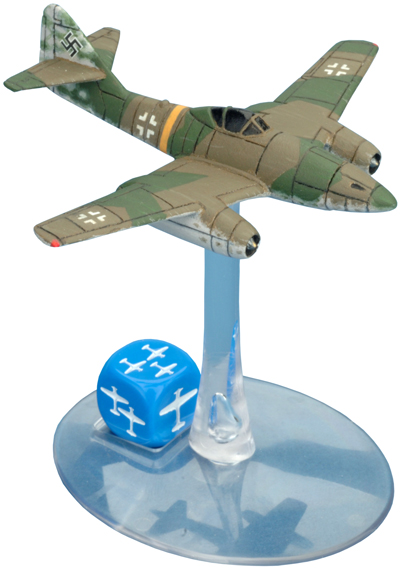 |
| The Contents of the Me 262 A2a Sturmvogel Box Set |
| Contact the customer service team at customerservice@battlefront.co.nz if you have any issues with any of the components. |
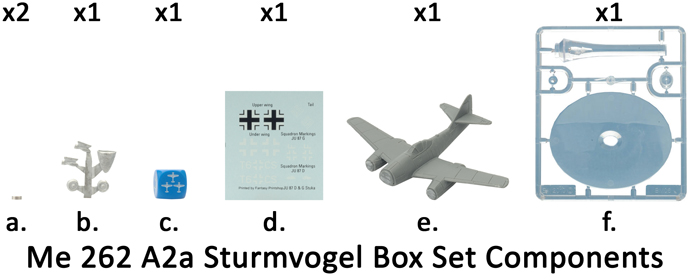 |
| Description of Components |
| a. 2x Rare-earth magnets. b. 1x Me 262 parts sprue. c. 1x Aircraft die. | d. 1x Decal sheet. e. 1x Resin Me 262. f. 1x Plastic flight stand. |
| Assembling the Me 262 A2a Sturmvogel | |
| Step 1. Attach the nose cone. | Step 2. Next, attach the intakes to each engine. | Step 3. Attach the first bomb... | |
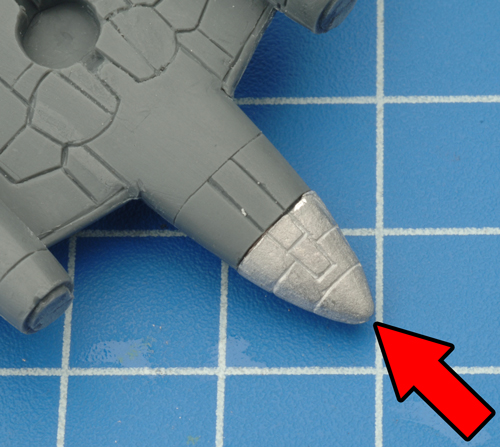 | 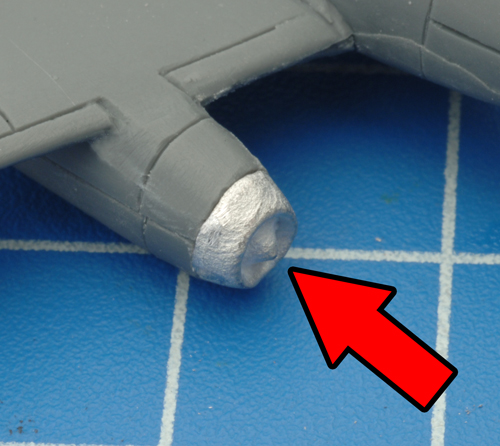 | 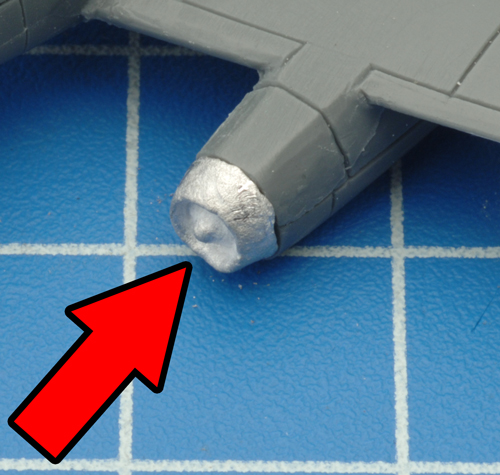 | 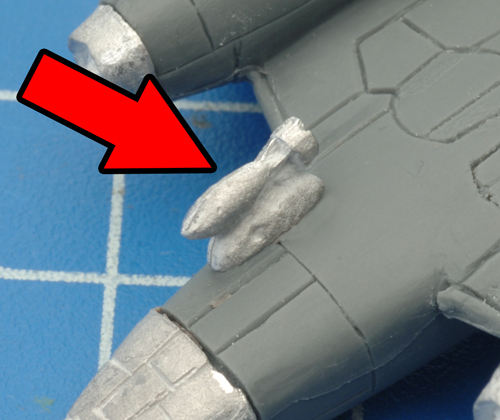 |
| Step 4. ... and then the second. | Step 5. Finally, add a rare-earth magnet to the recess for the flying stand. Read Chris' guide to Rare Earth Magnets here... | Step 6. With the rare-earth magnet in place, the Me 262 is ready for painting. Learn how to paint the Me 262 here... |
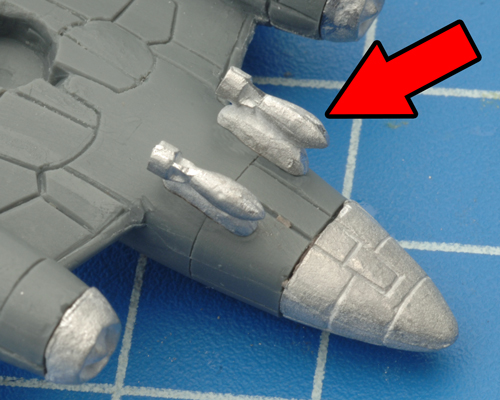 | 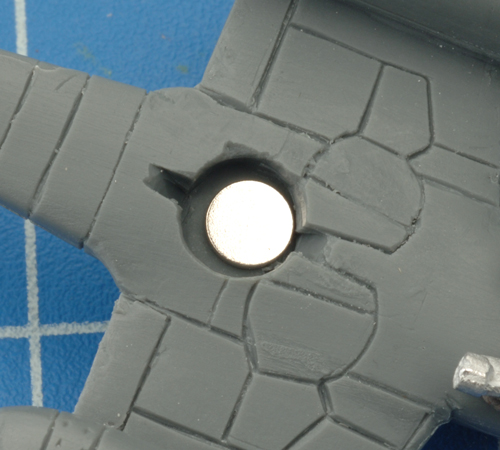 | 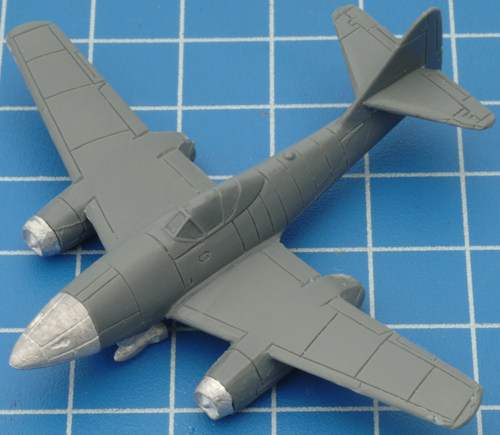 |
| Assembling The Flight Stand |
| Step 1. Cut the parts of the flight stand off the plastic sprue and clean them up. The best way to cut the parts off the sprue is with a sharp hobby knife or a pair of hobby cutters. | ||
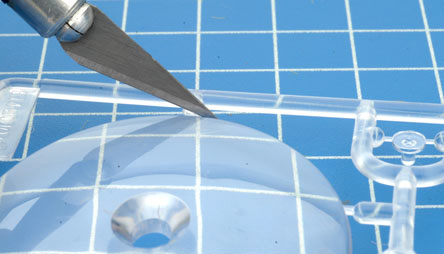 | 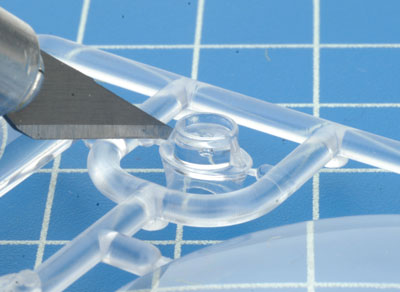 | 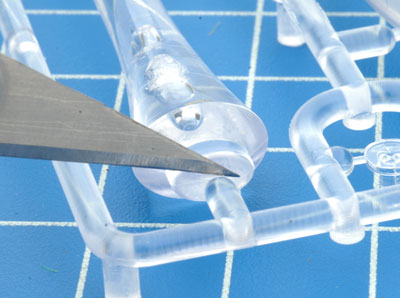 |
| Step 2. Attach to stalk to the flight stand base. Tip: When assembling the flight stand it is best to use hobby glue especially formulated for plastics. However, Super Glue can be used if you don't have access to specific plastic hobby glue. | Step 3. Add the magnet cap to the top of the stalk. Casey has done another excellent job working with Evan to create an excellent system of attaching the flight stand to the bottom of the Me 262. Note: The cap fits snugly to the top of the stalk, so only use a very small amount of glue to hold the magnet cap in place. | Step 4. The cap has a recess designed for the supplied magnets. The cap is designed especially to work in conjunction with the recess on the bottom of the Me 262 and the magnets to create a solid connection between the stand and Me 262. Note: The cap also a two tabs to match the two slots on the bottom of the Me 262. |
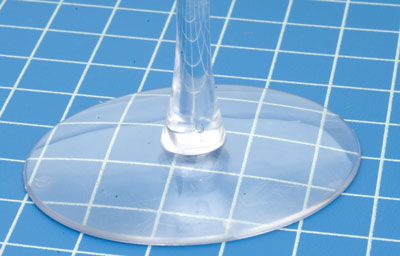 | 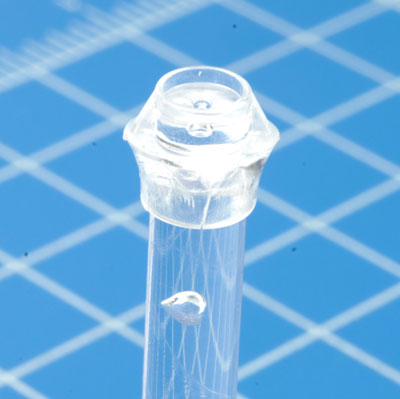 | 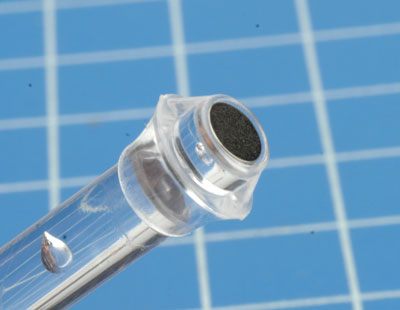 |
| Below: The flight stand plugged into the belly of the Me 262. | Below: The Me 262 on the flight stand. |
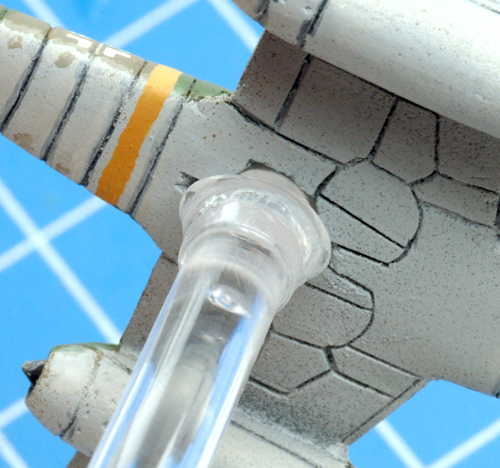 | 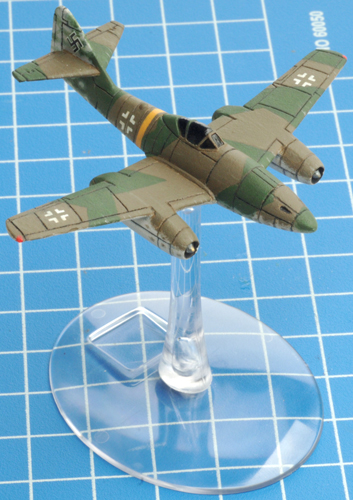 |

Ingen kommentarer:
Legg inn en kommentar